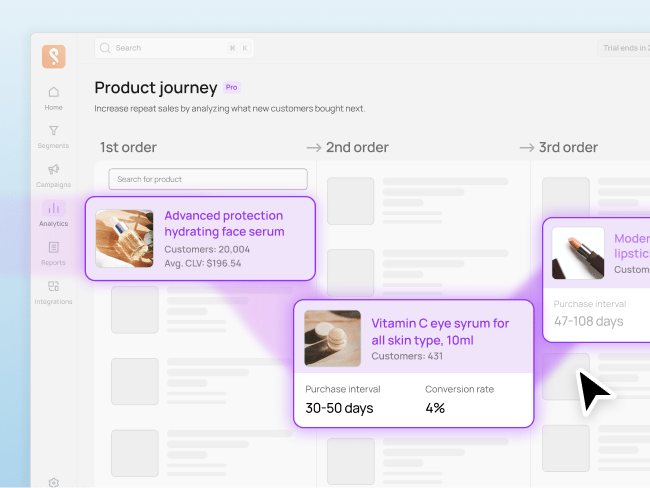Let’s all just pause for a minute and spare a thought for whoever invented coffee. ☕ That is all. ✌

| TWEET OF THE WEEK
Part 1: The Evolution of Subscription Models in DTC Brands
Quick history before we kick off. Shh, class is in session.
Initially, subscriptions were a rare offering in DTC, reserved for specific categories like razors or meal kits that were inherently “subscribable.”
Brands like Dollar Shave Club and Birchbox led the charge, demonstrating that consumers were willing to commit to regular deliveries for convenience and consistency.
In the early 2010s, subscription models were a fairly novel concept. Brands that adopted this model early on focused on products with a natural replenishment cycle, such as grooming supplies and beauty samples.
These early adopters capitalized on the convenience factor, making it easy for customers to receive essential items without the hassle of reordering. This model provided predictable revenue streams for brands and offered slightly discounted consumer pricing—a win-win.
As success stories like Dollar Shave Club, Birchbox, and Blue Apron gained traction, more brands began to explore the subscription model.
By the mid-2010s, the subscription boom was in full swing. It seemed like every new DTC brand was offering a subscription option. FabFitFun, for example, made a splash with its quarterly boxes of curated wellness and beauty products.
This trend extended beyond replenishable goods, including everything from fashion to fitness products. The allure of recurring revenue and increased customer lifetime value (LTV) made subscriptions an attractive proposition for many brands.
Why pay to acquire a customer a few times if you can just hook them into a subscription??
As the trend gained momentum, brands began to default to subscription models. They lured customers with attractive discounts and perks to lock in long-term commitments.
MeUndies was an OG in the “make something a subscription even if it’s generally not subscribable” and introduced monthly subscription packs, creating a whole new world of recurring purchases.
However, this approach often led to challenges across the ecosystem. Only some products were suitable for a subscription model, and only some customers wanted to commit to recurring purchases.
This misalignment usually resulted in high churn rates, with customers canceling after the initial discount period.
We saw companies like Repeat create a movement around the “not everyone should be a subscriber vs. a repeat purchaser.”
Fast forward to today, and we’re witnessing a more tempered approach. Brands recognize that not all products are fit for subscription and that aggressive discounting can erode margins and attract the wrong type of customer—those only interested in the initial deal.
Our friend Bryan had a solid post about this on Linkedin this past weekend.
| YOUTUBE UNIVERSITY
How to increase Conversions as a 7-Figure Brand | Foundr Webinar with Carl Weische
| TOGETHER WITH SEGMENTS
Segments analytics is your data science team.
We work alongside marketing and operations teams to uncover deep insights buried in your data and help DTC brands optimize for growth.
We plug into any Shopify store and extract valuable insights and segments, and help you target the same audience across email, Meta, Google, and more.
Centralize your data and analytics, automate audience building, and optimize for growth.
It's the right investment in data for growing brands. Build your all-star data team later.
As a valued member of the Workspace6 community, access Segments Analytics at an exclusive 15% discount. Elevate your ecommerce strategy—start using Segments Analytics today and harness your data's full potential.
| QUICK SHOTS
@ChereneAubert: The worst use case for a/b testing is minor aesthetic tweaks that stem from internal debates.
@RyeMcKenzie: Don't sleep on listicle landing pages if you have to educate your potential customers on the benefits of your product before they will purchase.
@zachmstuck: My new favorite dtc brand…an aesthetic mini fridge for $1500 on preorder. Ads and site all dialed 🤌
@derekhalpern: So, people asked, “do you have any tips for getting in Walmart? The answer isn’t going to make anyone happy. But here goes:
@vincentbeima: The number one thing Google wants to prevent is advertisers leaving. So they create a black box system that takes credit for any touchpoint that was coming from it or "assisted" by it. Because, if you have a higher ROAS you are motivated to spend more.
| HERE FOR THE MEMES
| AND IN OTHER NEWS…
| GET LINKED
| RECOMMENDED SOFTWARE & SERVICES
BoxFort Commerce helps clothing & high-sku brands scale with efficient Shopify fulfillment. Unlike the Bobs & Monks of logistics, we ship hundreds of thousands of orders for 3 of our own clothing and jewelry brands, so it’s imperative that our processes are built around saving money & consistency. Learn more here.
Deep Ocean Partners solves your working capital needs and then some. Get access to 1.5x - 2.5x higher credit limits than traditional asset based lenders and generate 50%+ cash flow savings versus revenue-based fintechs. Sign up here to find out if you qualify.
| STAT ATTACK 👊

| YOU’RE HIRED
Brand
Email & Ecom Marketing Manager (Ash & Erie)
Front-End Engineer (Neurohacker Collective)
Got a job you want us to list? Let us know.
| THE OUTRO
Okay so maybe you’re not a coffee person. Whoever lovingly prepared your macha, or mushrooms, or margaritas, or whatever you use to put a bit of spring in your step. Spare a thought for THEM.
💪 Onwards! 🚀
Workspace6
👆👆👆
They’re reaching 7, 8 and 9 figure merchants.
Talk to us about sponsoring this newsletter.







